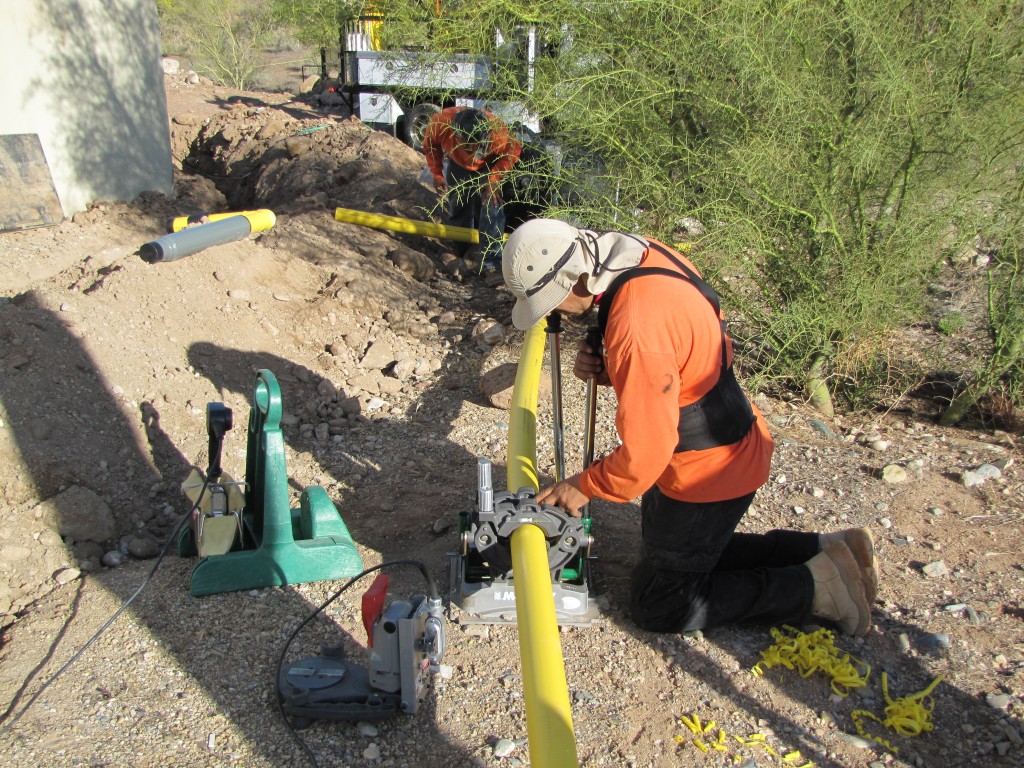
New Natural Gas Installation
A new natural gas installation into a new facility is normally routed to the building underground with natural gas plumbing materials. This is done by licensed and certified gas technicians who know how to install the pipes and pressure test them, all while ensuring that the installation is safe and meets all building codes.
This part of the installation normally ends at the foundation of the structure. At the end of the underground gas piping, near the foundation, the natural gas provider will install a gas meter.
From the gas meter located outside the building, gas piping can be routed underground to access the interior at various points as needed. More typically though, it is routed through the walls or attic, where it is more accessible for changes, repairs, or additions to the system.
There are a number of different types of gas piping materials that are available for use, both outside and inside the building:
- Black steel pipe
- Galvanized steel pipe
- Flexible – corrugated stainless steel tubing (CSST)
- Fusion bonded epoxy steel
- Yellow PE (polyethylene) gas piping
Yellow Polyethylene gas piping is typically the product of choice, with over 90% usage for gas piping in North America today. Check building codes in your city and state to determine what types of gas piping material are permitted.
Retrofitting a Building With Natural Gas
Retrofitting a building for natural gas involves nearly the same gas piping installation process as a new construction. The difference is that you may need to cut into the walls to route the piping or run the piping around or under the building to selected entry points for attachment to gas appliances. All access and altered points into and throughout the building will have to be repaired and returned to their original state once the retrofit is complete.
Contact an Experienced Gas Line Professional at RP Gas Piping Today
Building owners should remember to always use a licensed and certified gas piping contractor like RP Gas Piping to complete their natural gas installation. RP Gas Piping is knowledgeable in all forms of new construction and what would need to take place to install natural gas into an existing building. Our expertly trained and highly qualified staff will work with you every step of the way to make sure your project is completed according to city and state regulations and all gas piping codes.
Always remember that natural gas is explosive, highly flammable, and extremely dangerous. It should only be handled by professionals. Contact RP Gas Piping today to speak with a professional about your next natural gas project.
Here are three more articles to check out:
Gas Pipe Plumbing vs. Traditional Plumbing
Advantages of Propane
Natural Gas Features to Enhance Your Outdoor Space


